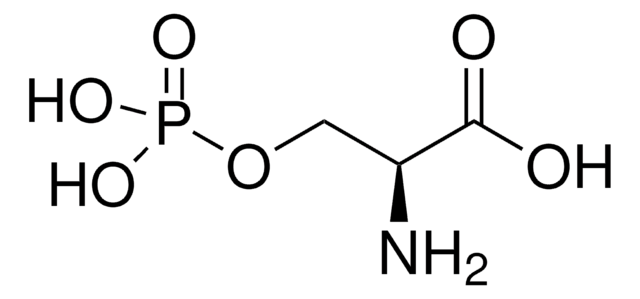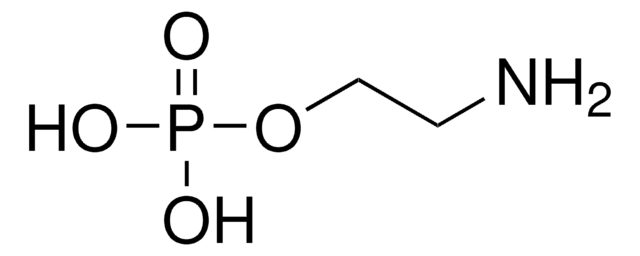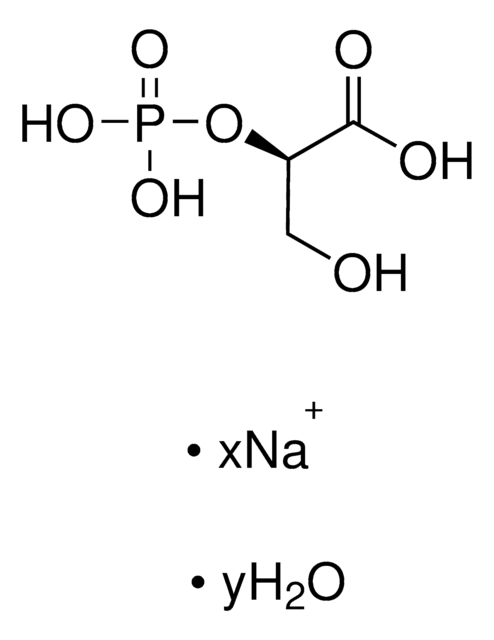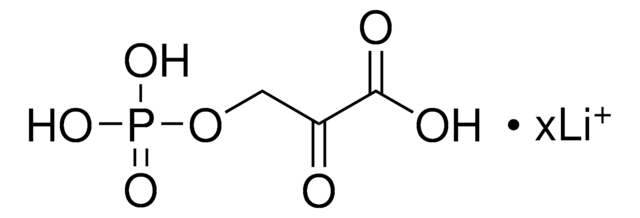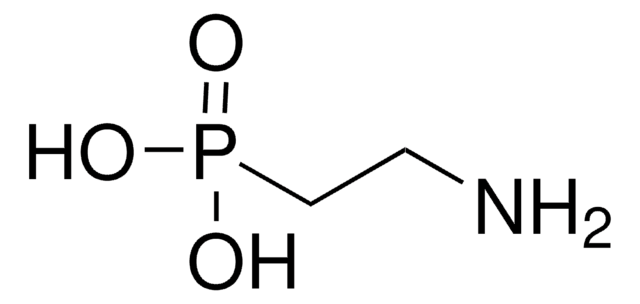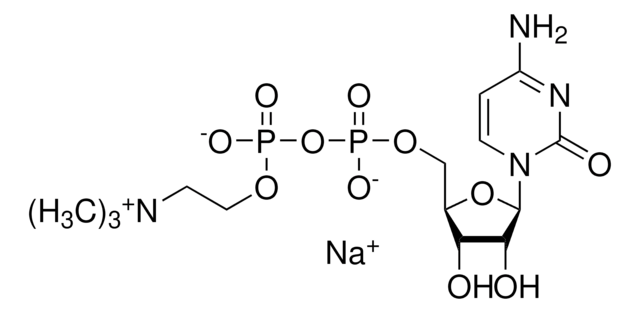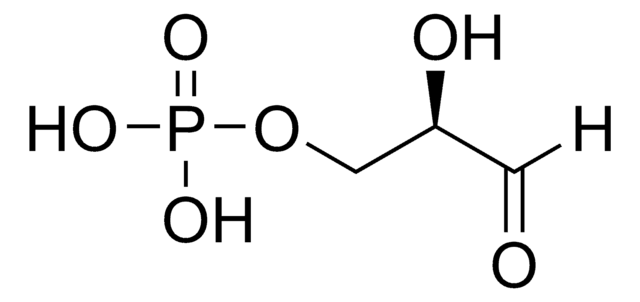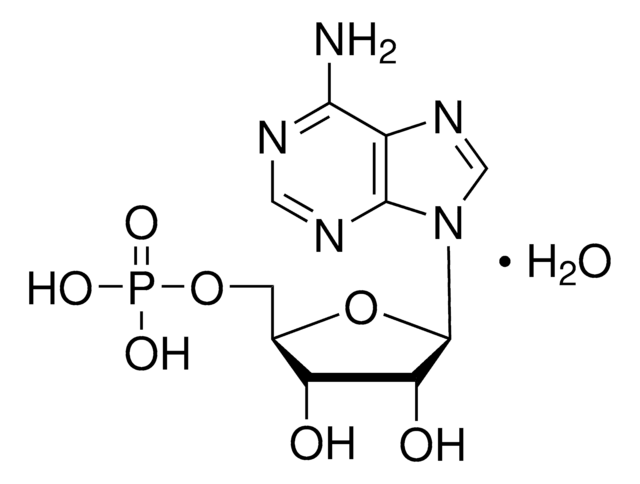72764
2-Phosphoglycolic acid lithium salt
≥95.0% (HPLC)
Synonym(s):
2-(Phosphonooxy)acetic acid lithium salt, Glycolic acid phosphate lithium salt, Lithium phosphoglycolate
Sign Into View Organizational & Contract Pricing
All Photos(1)
About This Item
Empirical Formula (Hill Notation):
C2H5O6P · xLi+
CAS Number:
Molecular Weight:
156.03 (free acid basis)
Beilstein:
1773480
UNSPSC Code:
12352204
NACRES:
NA.32
Recommended Products
Quality Level
Assay
≥95.0% (HPLC)
form
powder or crystals
storage temp.
−20°C
InChI
1S/C2H5O6P/c3-2(4)1-8-9(5,6)7/h1H2,(H,3,4)(H2,5,6,7)
InChI key
ASCFNMCAHFUBCO-UHFFFAOYSA-N
Biochem/physiol Actions
Manifold links of photo-respiration to central metabolism, 2-phospho-glycolate content of tissues.
Storage Class Code
11 - Combustible Solids
WGK
WGK 3
Flash Point(F)
Not applicable
Flash Point(C)
Not applicable
Choose from one of the most recent versions:
Already Own This Product?
Find documentation for the products that you have recently purchased in the Document Library.
Customers Also Viewed
John Knight et al.
Analytical biochemistry, 421(1), 121-124 (2011-11-19)
Glycolate and 2-phosphoglycolate (PG) are 2-carbon monocarboxylic acids with ill-defined metabolic roles. Their concentrations have not yet been described in tissues apart from body fluids and erythrocytes. We describe the use of ion chromatography coupled with mass spectrometry (IC-MS) to
Hermann Bauwe et al.
Current opinion in plant biology, 15(3), 269-275 (2012-01-31)
Photorespiration is a Janus-headed metabolic process: it makes oxygenic photosynthesis possible by scavenging its major toxic by-product, 2-phosphoglycolate, but also leads to high losses of freshly assimilated CO(2) from most land plants. Photorespiration has been often classified as a wasteful
Iris N Serratos et al.
Journal of molecular biology, 405(1), 158-172 (2010-10-26)
Electrostatic interactions have a central role in some biological processes, such as recognition of charged ligands by proteins. We characterized the binding energetics of yeast triosephosphate isomerase (TIM) with phosphorylated inhibitors 2-phosphoglycollate (2PG) and phosphoglycolohydroxamate (PGH). We determined the thermodynamic
Our team of scientists has experience in all areas of research including Life Science, Material Science, Chemical Synthesis, Chromatography, Analytical and many others.
Contact Technical Service

